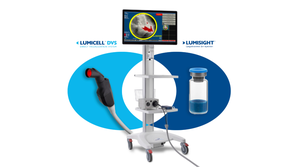A Redmond, Washington startup that aims to treat ischemic stroke by using ultrasound technology is looking to raise $8.2 million, according to a regulatory filing.
April 23, 2013

A Redmond, Washington firm that aims to treat ischemic stroke in the emergency room by using ultrasound technology is looking to raise $8.2 million, according to a regulatory filing.
The company - Cerevast Therapeutics - has already raised nearly $1.5 million. In December, 2011, Cerevast announced that it had closed an initial $6.6 million of a $15.8 million Series C round. Paul Clark, an operating partner with private equity firm Genstar Capital, is named in the filing. Clark is also a board member.
The company has developed the ClotBust ER ultrasound device is used to deliver energy to the occluded part of the brain non-invasivelyand is used in conjunction with standard intravenous thrombolytic therapy. The device, which was cleared by European regulators in December 2011, does not need a trained sonographer or vascular technician to operate.
"The Clotbust ER significantly reduces the technical challenges associated with the administration of transcranial ultrasound for the treatment of ischemic stroke," said CEO Bradford Zakes, in a news release announcing the CE Mark approval. "Unlike conventional Doppler instruments that are designed and approved for diagnostic purposes only, the Clotbust ER delivers therapeutic ultrasound energy to the region of the occlusion without the need to aim the transducer or hold it in place by hand for extended periods of time. This represents a major advancement in the emergency room setting where trained sonographers or vascular technicians are not always available."
The company was founded in 2009 when it acquired the assets of ImaRx Therapeutics Inc.
-- By Arundhati Parmar, Senior Editor, MD+DI
Related Content
Startup that Makes Sensor to Track Use of Asthma Inhaler Raises $7 million in Series A
Maker of Prostate Cancer Screening Imaging Device Seeks $2.5 million
You May Also Like


